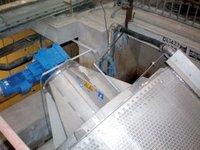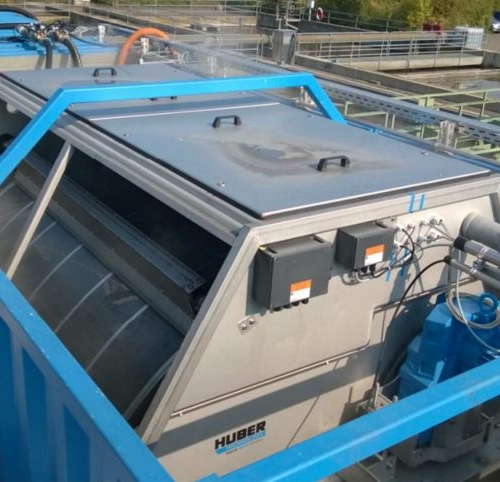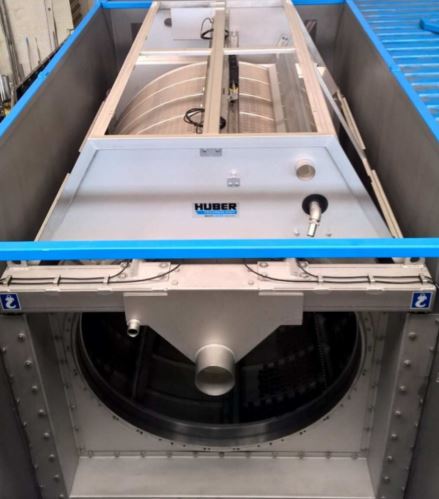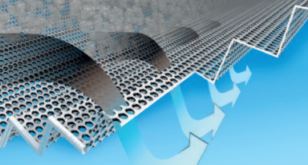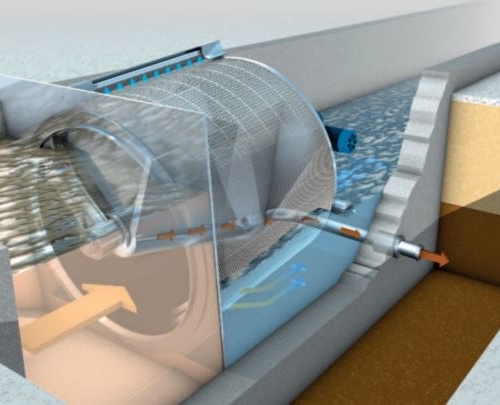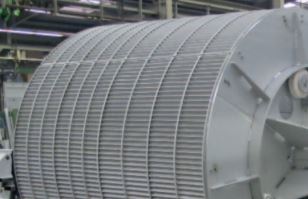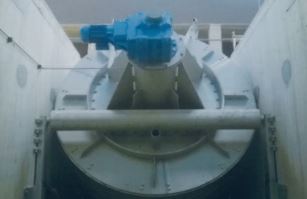
Primary Settlement Screens
LIQUID DRUM – The superior alternative to primary sedimentation, with 90% less space
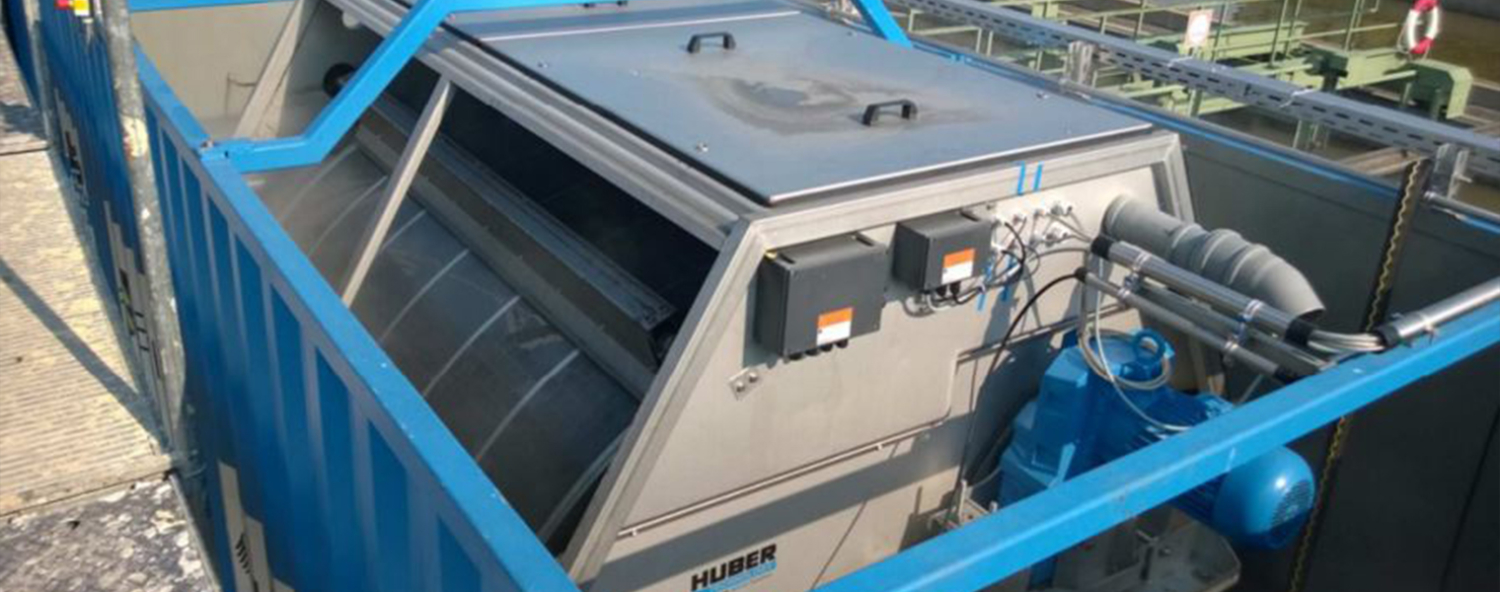
The HUBER LIQUID Drum is an in-channel ultra-fine screen that is used as an alternative to longitudinal and circular primary clarifiers in a sewage treatment plant. The system requires 90% less space than a traditional clarifier resulting in a significant reduction in construction costs, or alternatively freeing up existing tanks that can be reconfigured into aeration basins or wet weather storage.
- 90% less footprint than a traditional clarifier or sedimentation tank
- Similar suspended solids removal rate
- Gravity discharge of sludge to a press for thickening
- Significant reduction in construction costs, earthworks and structural works
- Up to 15MLD in a single train
- Automatic unattended operation
- Complete stainless steel fabrication
Find out more
Primary sedimentation is a common process step utilised downstream of the inlet works and is used to remove fine particles and floatables prior to biological treatment. Primary sedimentation results in a reduced aeration tank volumes and the associated primary sludge stream which is rich in volatiles can contribute towards energy recovery via anaerobic digestion. The HUBER LIQUID Drum was developed as part of a research project on alternative technologies contributing towards energy utilisation. The LIQUID technology is an extension of the ROTAMAT Screening Process, which is proven in 4000+ references.
The LIQUID Drum utilises a fine mesh, typically 0.1 – 0.2mm in aperture, and arranged in a star profile to increase effective surface area of the drum. The fine mesh produces similar suspended solids removal rates as compared to a traditional primary clarifier.
A single LIQUID Drum Screen train can process 5 MLD in a 15m2 area in lieu of 200m2 required for a primary sedimentation tank. The largest units can process 15MLD in a single train. Long top and bottom maintenance intensive scraper chains are done away with and the captured primary sludge gravitates to a WAP press for thickening.
The HUBER LIQUID Drum is an in-channel fine screen that utilises a drum with mesh profile to separate fine solids from the sewage flow. It is typically installed in a concrete channel downstream of the inlet works. It is provided with a main frame, channel seal plate, covers, spray system and main drive.
As the fine solids accumulate on the screen face, the headloss gradually increases due to the blinding of the drum. At a preset headloss the drum is rotated through a wash recycle and the solids are washed into a trough and sluiced out of the machine for further processing.
The mesh geometry provides low headloss values and the drum sizing and water levels are configured to reduce headloss values across the total screen. Spray water is used for washing of the drum in a low and high pressure system. Reclaimed effluent can be used for this duty.
The discharge of the screened sewage gravitates to the next process step. The solids washed from the drum are sluiced from an internal trough. Typically these solids are pumped for digestion or can be thickened using a HUBER WAP LIQUID Press
- Mesh profile provides excellent capture and is easily cleaned
- Unattended automatic operation
- Complete stainless steel fabrication for resistance to corrosion
- Star profile of the mesh increase effective surface area
- Reinforced basket to high strength and longevity
- Low and high pressure washwater systems for drum cleaning
- A number of sizes available, from 1 to 15 MLD
- Highest fabrication standards, made in Germany
- 90% reduction in footprint associated with primary sedimentation
- Significant reduction is capital costs associated with construction
- Gravity flow of captured sludge to a Wash Press for thickening to 4 – 6% without polymer
- Similar suspended solids removal rates to primary clarifiers
- Intermittent operation based on headloss
- Utilisation of existing primary tanks for other purposes

